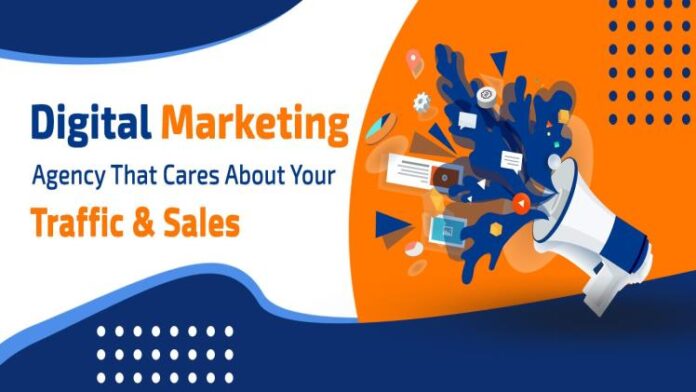Digital marketing is the process of promoting a business or a product through digital channels like websites, mobile devices, social media and search engines. It’s a popular method to target consumers and boost sales.
Digital marketing evolved from a time when corporations relied on traditional methods to reach consumers, such as print, radio and television advertising. However, the rapid growth of the internet changed everything.
Website Development

Website development is the process of creating a website that’s optimized for search engines and user-friendly. This can help increase traffic to a website and convert visitors into customers.
Web development involves a variety of skills and techniques, including coding, design, content creation, and performance optimization. Generally, a Web developer will work with a designer to create a site that meets the client’s needs and is easy to update.
A front-end developer creates the part of a website that the user sees and interacts with on their computer or mobile device (the browser). This includes things like layout, fonts, colors, and navigation elements.
Back-end developers manage the data stored in a website’s database. They use programming languages to store, organize and retrieve this data from the server.
Using these programs, Web developers can create a website that is easy to manage, easy to update, and responsive to different devices, such as desktops, tablets, and smartphones. It’s important for a website to be designed so that it looks great no matter the size of the screen.
Search Engine Optimization (SEO)

SEO is the process of improving a website or page’s visibility on search engine results pages (SERPs). It involves technical and business decisions that may take a long time to see results, but can be effective.
The first step in any SEO process is identifying keywords that are relevant to your business and your target audience. This will help you determine the type of content you need to create and how much effort it will take to achieve a top search engine ranking.
You can do this by creating a seed list of keywords that your ideal customers are likely to type into Google or other search engines. Next, you can start creating content for your site that includes those terms.
SEO also aims to improve the quality and quantity of traffic from search engines, which is commonly measured by the position or rank a website has on SERPs. Companies that have a high search engine rank often capture more business than those with lower rankings.
Social Media Marketing

Social media marketing (SMM) involves promoting your business on social networks such as Facebook, Twitter, LinkedIn, Pinterest, Instagram, and YouTube. The key is to build a following and promote your brand in a way that resonates with your audience.
SMM combines content marketing, advertising, and influencer marketing to engage with your customers and drive sales. It’s a highly effective and cost-efficient marketing method.
As a result, SMM is important for any business looking to grow their brand and build loyal customer bases. It can also help you increase website traffic and leads, as well as generate word-of-mouth marketing.
The key to success with SMM is to choose the right platforms, determine goals, and create a content plan. These goals should be attainable, relevant, and timely.
Email Marketing

Email marketing is one of the oldest forms of digital marketing and a great way to keep your brand top-of-mind with customers and prospects. It can help you generate leads, build brand awareness, and nurture prospects to become paying customers through different types of email marketing.
To start mailing, you need to build a list of opt-in subscribers who have given their permission to receive emails from your business. This is essential to ensure your brand’s reputation and avoid any potential problems with data privacy regulations.
Emails can be used to promote new products and services, tease upcoming events or announcements, and much more. They can also be used as a softer sell to educate your audience on the value of your brand or to keep them engaged between purchases.



















